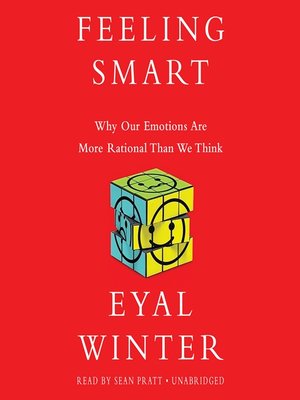Feeling Smart
audiobook (Unabridged) ∣ Why Our Emotions Are More Rational Than We Think
By Eyal Winter

Sign up to save your library
With an OverDrive account, you can save your favorite libraries for at-a-glance information about availability. Find out more about OverDrive accounts.
Find this title in Libby, the library reading app by OverDrive.



Search for a digital library with this title
Title found at these libraries:
| Library Name | Distance |
|---|---|
| Loading... |
Distinguished authors like Daniel Kahneman, Dan Ariely, and Nassim Nicholas Taleb have written much about the flaws in the human brain when it comes time to make a decision. Our intuitions and passions frequently fail us, leading to outcomes we don't want.
In this book, Eyal Winter, professor of economics and director of the Center for the Study of Rationality at the Hebrew University of Jerusalem, wonders why. If our emotions are so destructive and unreliable, why has evolution left us with them? The answer is that, even though they may not behave in a purely logical manner, our emotions frequently lead us to better, safer, more optimal outcomes.
In fact, as Winter discovers, there is often logic in emotion and emotion in logic. For instance, many mutually beneficial commitments—such as marriage or being a member of a team—are only possible when underscored by emotion rather than deliberate thought. The difference between pleasurable music and bad noise is mathematically precise, yet it is also the result of evolution. And our inherent overconfidence—the mathematically impossible fact that most people see themselves as above average—affords us advantages in competing for things we benefit from, like food and money and romance. Other subjects illuminated in the book include the rationality of seemingly illogical feelings like trust, anger, shame, ego, and generosity.
Already a bestseller in Israel, Feeling Smart brings together game theory, evolution, and behavioral science to produce a surprising and very persuasive defense of how we think, even when we don't.







